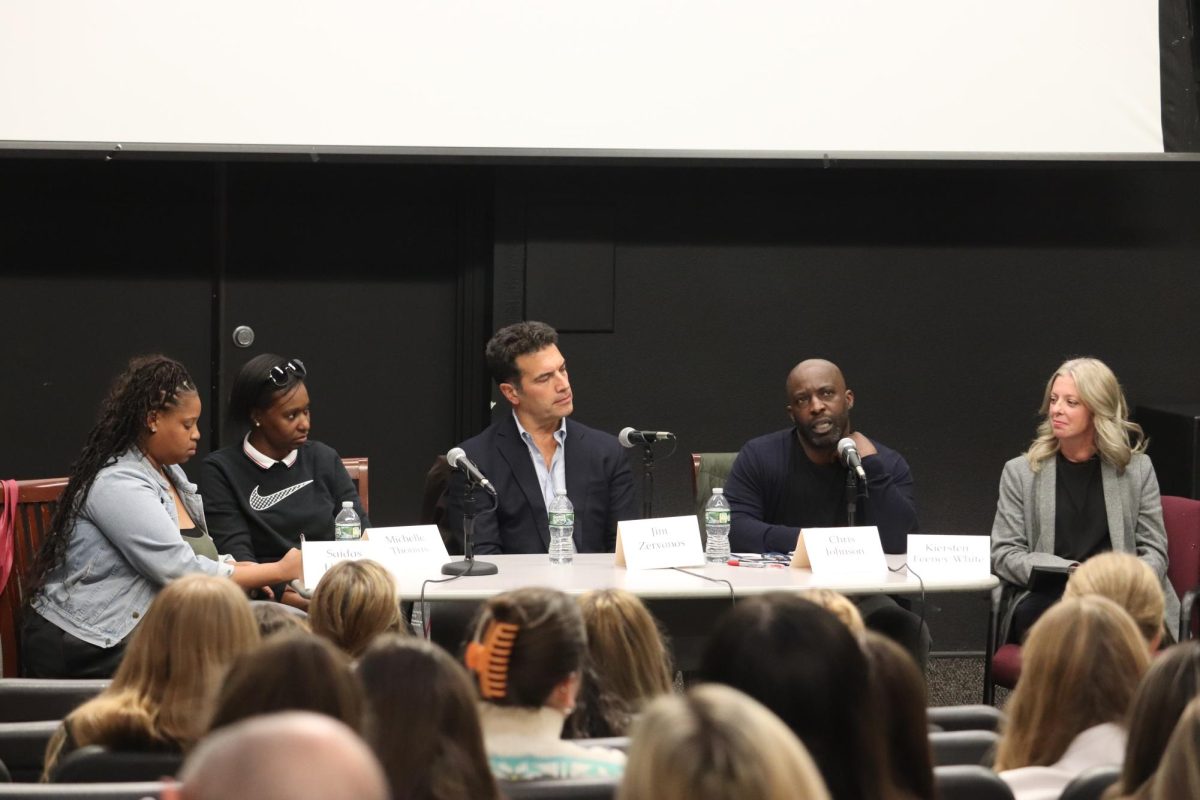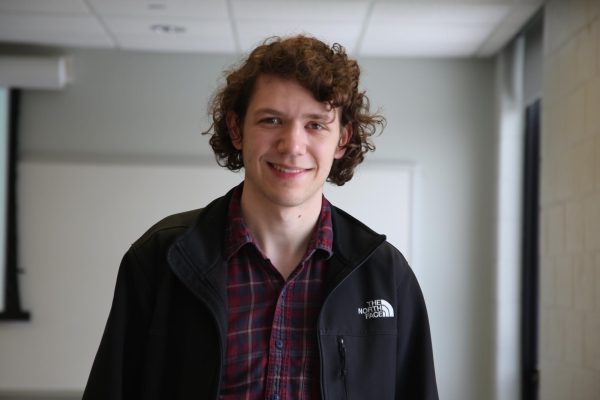The School of Education and Human Development (SEHD) held a panel discussion Nov. 14 in the Forum Theater, during which educators discussed ways to navigate complex subjects with students in the current political climate, including topics such as covid-19, school shootings and political polarization.
The panel consisted of five speakers from St. Joe’s and local schools in the Philadelphia area. About 75 in-person and 25 online students attended the event, titled “Complex Issues in Education During Polarizing Times.”
Saidas Hudock, one of the speakers and a sixth-grade English and social studies teacher at Samuel Gompers Elementary School, said there are multiple complex issues facing future educators.
“Some of the biggest issues facing families right now would be our political state, and also, mental health and finances are super big issues facing families, especially in the inner city,” Hudock said.
Some ways to address these issues with students are by “building relationships with families, building relationships with your students, understanding who they are, their background, and making sure they get the resources they need,” Hudock said.
Kathryn Wert ’27, one of two student moderators for the panel, said while political polarization has increased in schools over the last few years, it can lead to dialogue.
“I think a lot of the polarization, while it can be bad in and of itself, means that we are able to have conversations in our classrooms that people wouldn’t have had when we were in school,” Wert said.
Aimee Terosky, Ed.D., associate dean of the School of Education and Human Development and professor of educational leadership, counseling and social work, said aspiring educators can learn from the stories and experiences of people who are in the field.
“They’ve been learning, reflecting, reading, so they’re sharing with you a long term knowledge of what’s going on,” Terosky said. “They bring so much rich, past experience and their own evolution of thinking and reflections on what they’ve faced.”
Terosky said now is the most important time to have authentic conversations about complex issues with others, especially when people disagree.
“As educators, conversations are going to happen in your classrooms, in your offices, in your college and university settings,” Terosky said. “The goal as educators is to help people treat each other with humanity, humility and respect. We need to be prepared, now more than ever, to be able to engage in these conversations ourselves and to facilitate it for our students.”















































